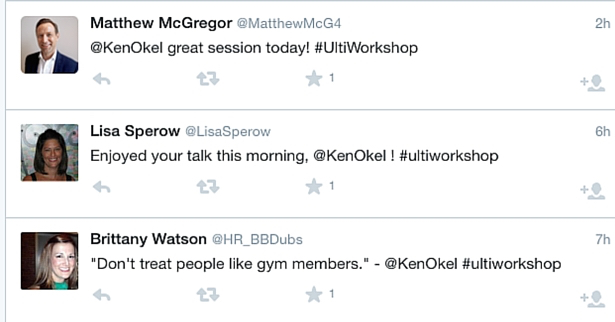 A lackluster shoe wardrobe taught me a great lesson about productivity and perception. It began after a meeting attended by several women. The ladies were noting how another man, who had just left the room, had a nice pair of shoes.
A lackluster shoe wardrobe taught me a great lesson about productivity and perception. It began after a meeting attended by several women. The ladies were noting how another man, who had just left the room, had a nice pair of shoes.
Everyone seemed to have a comment and when I was looked upon for my review, I had to admit that I’m not much of shoe expert and don’t pay much attention to them. My shoes are always polished but are more functional than fashion forward.
One of the women assured me this wasn’t a problem and even though my shoes weren’t that impressive, she had gotten to know me and valued me as a professional.
This comment, while charitable, made me think about perception. While the woman’s assurances were comforting, I realized that if someone met me for the first time and didn’t know me, then I’d likely be judged on my shoes.
While I doubt I’ll ever have a separate shoe closet, I can take steps toward raising my shoe game. In the world of perception, an initial impression can stick like gum to a sole.
On the job, similar sticky impressions can be made about your productivity. Little actions may change the way people view and work with you. Do any of these habits sound familiar:
You’re Always Late
If you’re known for being late to meetings, then how do you expect people to perceive you as someone who values their time? Does lateness produce an air of someone who is in control of their job or does it suggest a constant state of chaos?
Consider how you perceive people who arrive early, versus those who are late. Track your time to find out where you’re investing it and if you need to reallocate tasks in order to be on time.
Everyone is either busy or thinks they’re busy. If they can arrive on time, then you should too.
You Can’t Plan a Meeting
When you hold a meeting, do they often run long, go off topic, or end without an action plan? Again, you create a perception that you don’t value other people’s time.
This can result in people arriving late, ducking out early, or being distracted by email. You may have trained people to think they’ll get little value out of the meeting and their full focus in not necessary.
Make sure your meetings have a purpose, a desired outcome, and start on time. I’ve rarely heard complaints about effective meetings that end early.
You’re Slow to Respond to Messages
While you may feel you’re bombarded with email and phone messages, do you follow up with people in a reasonable amount of time? Do some perceive you as unresponsive?
Worse yet, do you they think you don’t care or won’t be bothered to respond. If this happens, they may stop asking for your opinion and make decisions without your input.
Figure out a prompt response process, even if it is to tell people that you’ll connect with them later.
Bottom Line
Perception does not always equal reality. Don’t undermine yourself with poor productivity habits.






